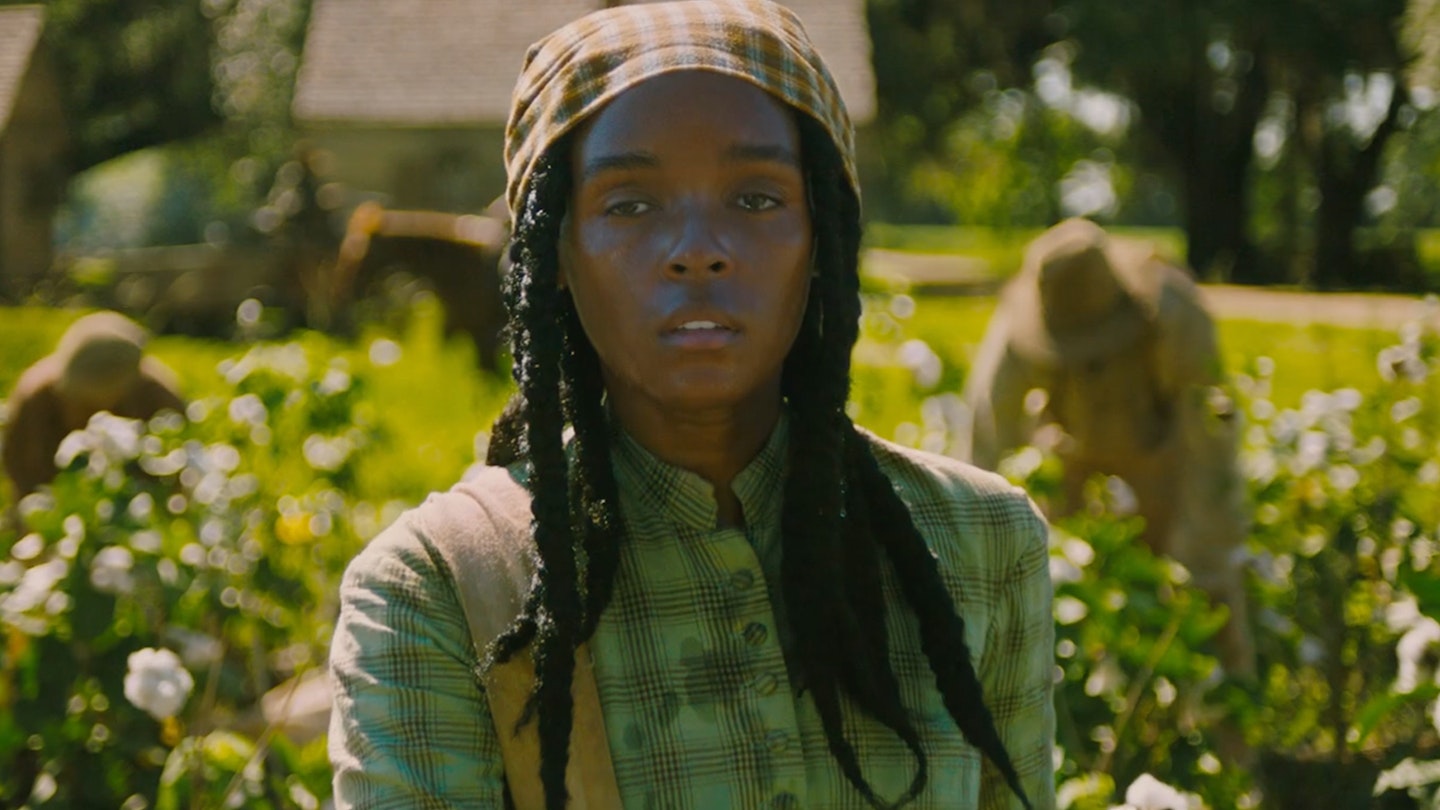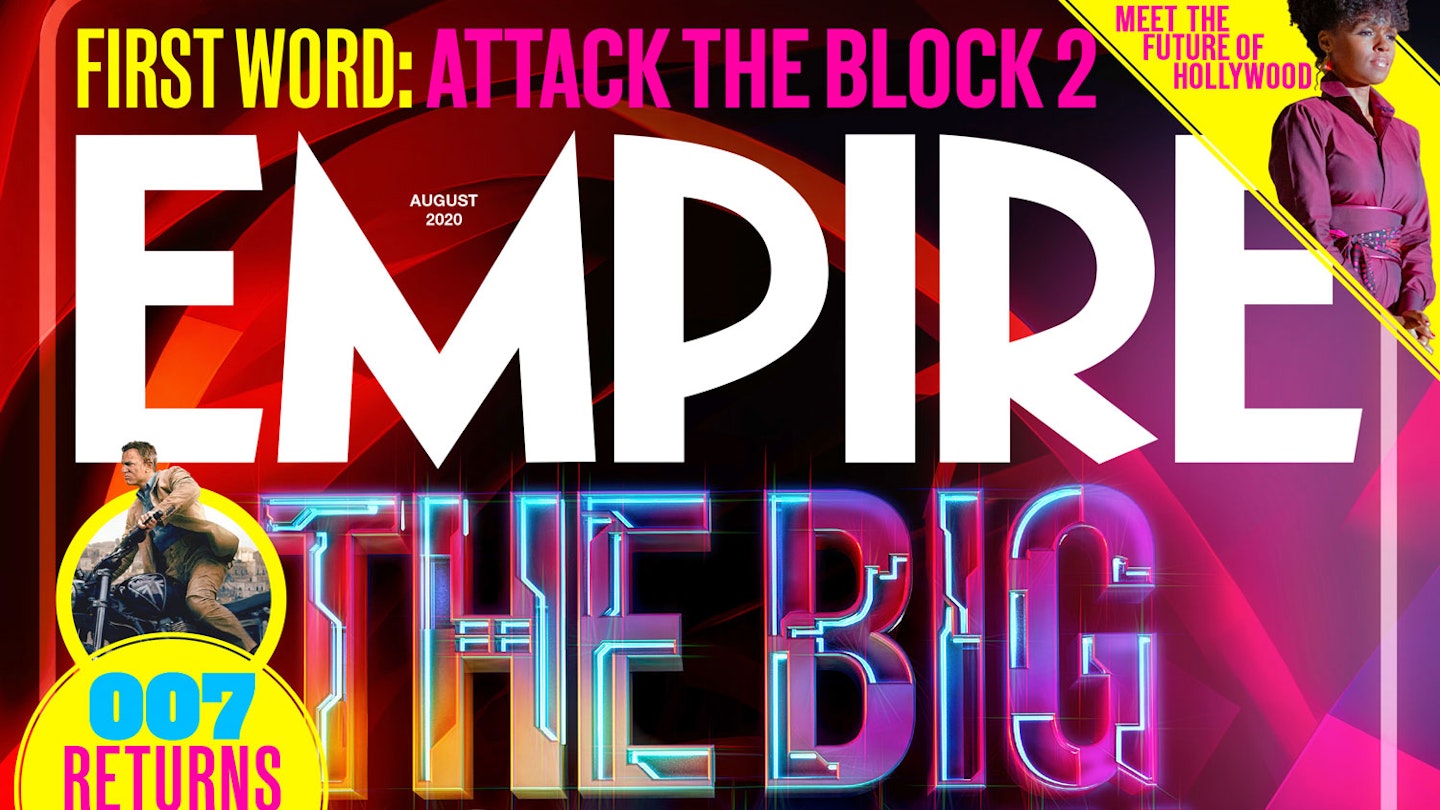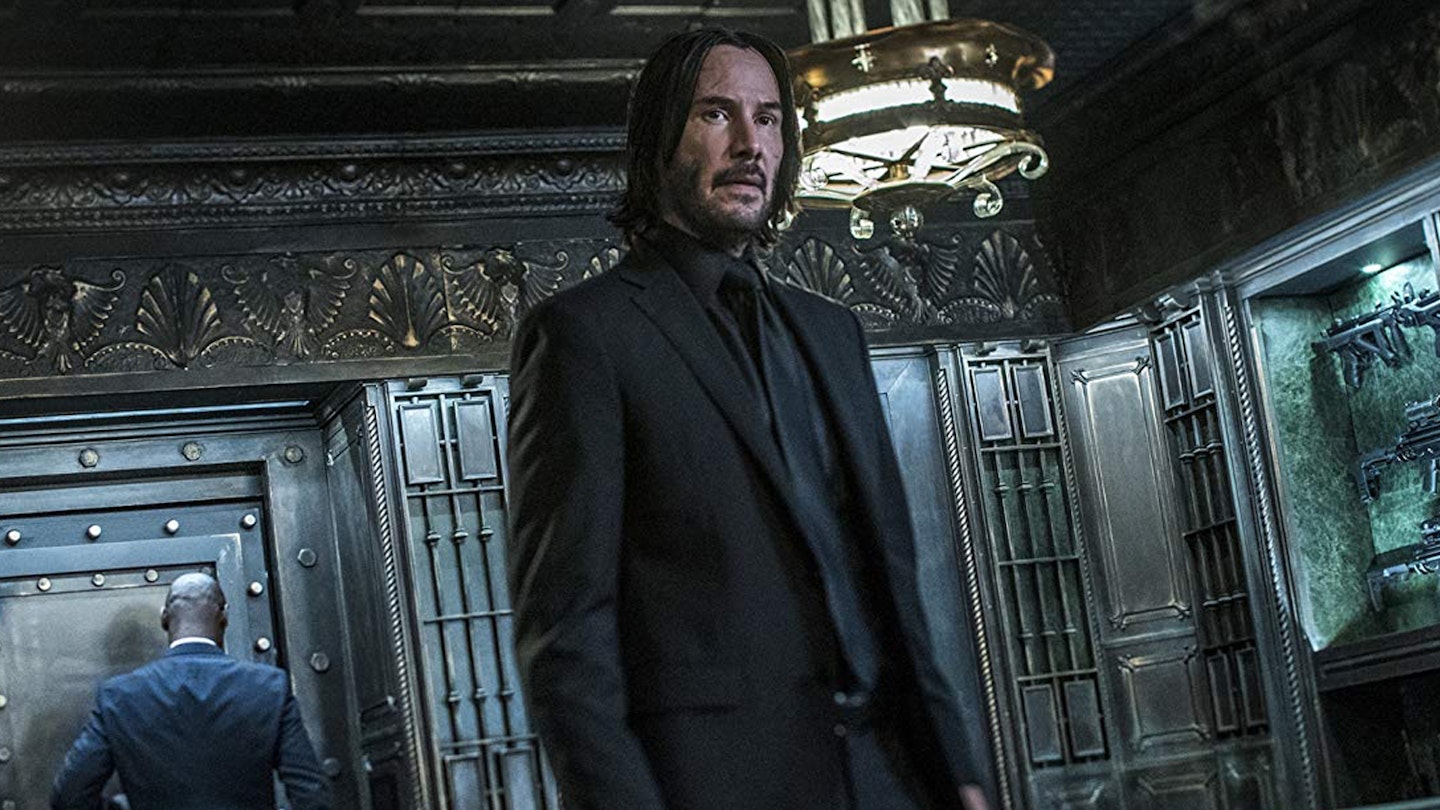The feature debut from filmmaking duo Gerard Bush and Christopher Renz – aka ‘Bush|Renz’, formerly of glossy ad campaigns and JAY-Z’s stylish ‘Kill Jay-Z’ music video – can’t be faulted for its ambition. Antebellum is a film with something to say about America today and the America of the not-too-distant past, and how those two places are still very much connected, presented as a twisted thriller in the post-Get Out Black horror boom. But while its point is made loud and clear, the film around it feels undercooked and misjudged.
Janelle Monáe proved a stand-out in the ensembles of Moonlight and Hidden Figures, and here steps up as an engaging lead performer in dual roles. In one narrative she’s slave Eden, who faces brutality at the hands of Confederate soldiers and her plantation masters in the Antebellum South (hence the film’s title). In another, she’s scholar Veronica Henley, embarking on a book tour for her latest work, ‘Shedding The Coping Persona’, speaking out on identity politics and trauma. Rather than interweaving these two strands, Bush and Renz play them out separately across three distinct acts, lumbering what should be a punchy, Twilight Zone-esque tale with awkward, stilted pacing.
It’s meant to be hard to watch, and it is, but it all plays strangely hollow too.
The film centres on Eden first, with an opening 30 minutes that’s handsomely shot — an extended take invokes the romanticised plantation imagery of Gone With The Wind, before gliding away from the gleaming white house to focus on the slaves working the fields. Though Antebellum is ostensibly a horror movie, genre tropes are absent in its opening section, instead unflinchingly depicting the real-life horrors of American slavery — a gruelling parade of imagery that makes a spectacle of Black pain, comprising torture, beatings, rape, murder and brutalisation. It’s meant to be hard to watch, and it is, but it all plays strangely hollow too.
The second act, flipping to Veronica’s perspective, isn’t as punishing, but remains unsatisfying – it’s here where Bush and Renz’s screenplay feels the thinnest, populated by characters who never feel real, blurting on-the-nose dialogue that robs the film of its potency. And again, the scares are curiously absent — resulting in a film that oscillates between harrowing and humdrum.
While the final act — reverting back to the plantation — offers some much-needed catharsis after everything preceding it, Antebellum can’t help but feel underwhelming beyond its central audacious reveal. Bush and Renz clearly have a future ahead of them as directors with visual style and ideas to match, but the substance here is as lacking as any tangible frights. The true reveal is that Antebellum really isn’t a horror movie —instead, it’s one whose real-life horrors needed balancing out more carefully.




